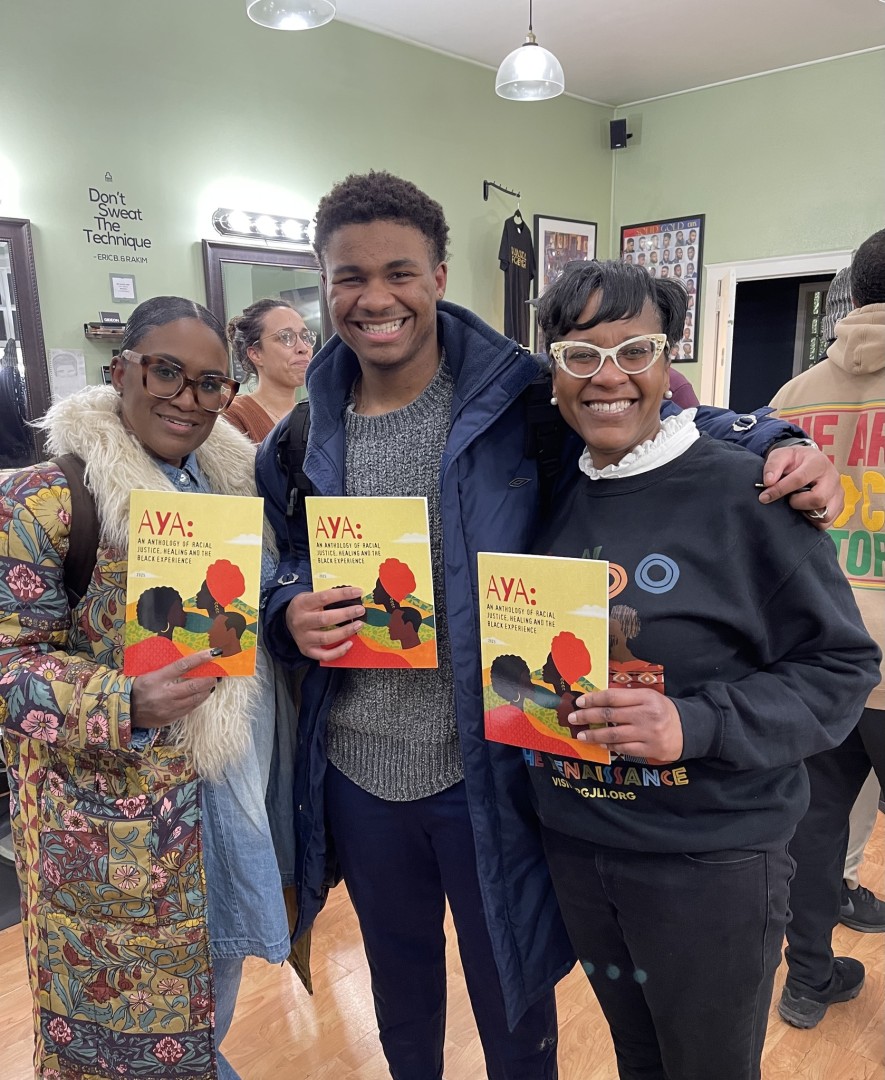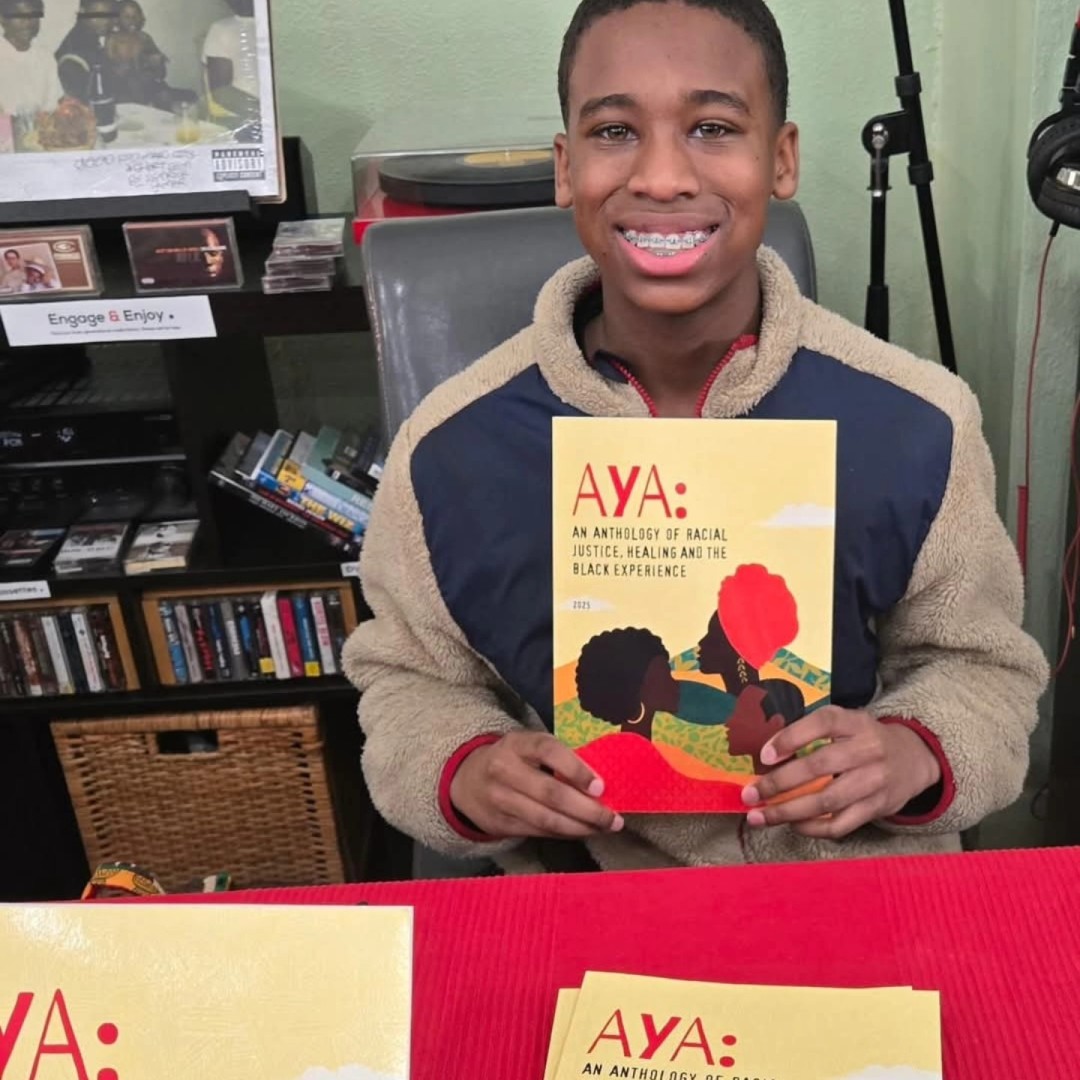
In an ideal world there would be a a systematic fair treatment for all people no matter what race they are, resulting in equal opportunities for all. Sadly, in 2025 even though major changes have been made the world is still lacking in racial justice.
Martin Luther King, Jr. Day a champion of justice, equality, and nonviolent change would be proud of the work that the founder of Planting People Growing Justice Leadership Institute is doing to make the world an equal place to live in.
I sat down with the founder of Planting People Growing Justice Leadership Institute to learn more about her mission and their new book. This is what she had to say.
You are the founder of Planting People Growing Justice Leadership Institute, can you please explain why you founded the organisation and what your organisation aims to achieve?
I founded the organization to end the reading crisis in the United States. Our organization is committed to growing futures- one book at a time, one child at a time.
This is personal and important to me because as a civil rights attorney many of my clients learned how to read in prison. This is unacceptable but somehow, we created a RULE OF 4:
1 in 4 American children are not reading at grade level by 4th grade.
If you are not reading at grade level by 4th grade, you are four times more likely to drop out of school. And here’s the connection, you are also 3.5 times more likely to be arrested during your lifetime.
This is UNACCEPTABLE. This is an opportunity for change where we can create new pipelines for the future and work to end mass incarceration.
How do we do this? We do this in two ways. First, through our publishing house, we ensure that we are creating diverse books to help young people discover the joy in reading. This is the first connection to be inspired to read. In addition, we host writing competitions because we know when young people use their voices, they have power. We are helping to train the next generation of diverse authors.
Secondly, through our bookstore, we sell children’s books that celebrate diversity. Why does this matter? It creates both mirrors and windows. Mirrors for young people of color to see a positive representation of themselves on the pages of books. In addition, for all children—we create windows that help create bridges across cultures.

You have a new book out; can you tell me more about it?
Aya: An Anthology of Racial Justice, Healing and the Black Experience is a powerful collection of voices from Black Minnesotans and members of the African Diaspora. Youth and community activists share personal reflections on justice, healing, and the Black experience.
Created to inspire action, Aya is more than a book. It’s a call to lead, serve, and ignite meaningful change in the fight for racial justice.
Who is Aya: An Anthology of Racial Justice, Healing and the Black Experience aimed at?
Aya is aimed at the curious reader who is hungry for knowledge. It serves as an invitation to explore new ideas and perspectives. This is an opportunity for growth, exploration and reflection.
You say, this powerful collection brings together voices in our community and reminds us of the strength we find in each other, can you explain what you mean by that?
I believe in the power of our shared humanity and common destiny. This is the community value of ubuntu. It is described by Archbishop Tutu as a gift from Africa: “Ubuntu is the essence of being human. It speaks of the fact that my humanity is caught up and inextricably bound up in yours. I am human because I belong.” As we come together, we can share ideas and perspectives. We can also build common ground through reflective listening, compassion, and humility. This is the foundation of community building.
In an ideal world, would you like to see your book put in all schools around the country?
In an ideal world, I would like to see the book used as a learning tool across the country and worldwide. This is an opportunity to gain cultural humility skills and make a commitment to embark on a lifelong learning journey. Cultural humility focuses on building bridges across cultures and practicing empathy and compassion.
How important is it for people to understand racial justice?
Understanding racial justice is essential. It begins with the recognition that race is a social construct. It is not rooted in biology or any other scientific framework. According to acclaimed historian, author, and educator, Dr. Mahmoud El- Kati: “Race- as we currently carry such a notion in our heads, is largely a myth, a fiction or a stage of false consciousness.” Further, Pulitzer Prize winner, Toni Morrison warned: “Race is the least reliable information you can have about someone. It’s real information, but it tells you next to nothing.” These are reminders about the importance of addressing the myth of race while also working diligently to eradicate systemic racism. This is a call to leadership.
Rev. Dr. Martin Luther King Jr. viewed youth as essential partners in the struggle for justice and powerful change agents, urging them to "make a career of humanity" and actively participate in building a better world. What do you think he would say about the work you are doing and what do you think his views of the world today?
We are helping children to “make a career of humanity” through our youth leadership development programming, Leaders are Readers and writing competitions. Each day, we are encouraging our young people to build a better world. This begins with the recognition that when you see a problem, you have a responsibility to create a solution.
Only 6.1% of teachers in the USA are black. With a mission to make a difference and to fight for racial justice, do you think this sends a negative message to young black children about achieving what they want out of life?
Research has shown that Black teachers help to improve student performance. They also help to increase graduation rates and college enrollment (Brookings). I can personally attest to the transformational power of Black teachers. The Black teachers in my life inspired me to dream big. They provided both the motivation and inspiration that I needed to achieve my life dreams like becoming a first-generation college student and civil rights attorney. They nurtured my skills and helped me to build the confidence needed to succeed.
Do you think there is enough funding given to schools to tackle this important issue of ending the reading crisis in the United States?
Additional funding is needed to support early childhood education and invest in family learning. When 80 percent of the brain is developed by age three, there is a need for additional resources to support early learning experiences. This requires an investment in programs like Head Start in order to ensure that children have the tools and resources that will promote healthy futures. In addition, home and community are the first institutions of learning. Therefore, it is vitally important to build intergenerational reading circles and a culture of reading.
Your organization has been doing an amazing job in highlighting the issue, but what other action would you like to see happen?
I would like to see early childhood education offerings accessible and available to all children no matter their income or zip code. All children deserve a high-quality learning experience that equips them with foundational learning and practical skills development.
In addition, all children should have a home library and read at least 1,000 books by kindergarten. This will promote reading habits and create a pathway for future academic success.
Further, we are working diligently to build intergenerational reading circles. This will aid in building a culture of learning. It will also promote the type of collective action needed to engage and support all learners.
For more information on how to purchase a copy of "Aya: An Anthology of Racial Justice, Healing, and the Black Experience" or to watch an insightful overview, visit: https://www.youtube.com/watch?v=cx7yFzLMRJQ
Planting People Growing Justice Leadership Institute is committed to planting seeds of social change by fostering leadership development and promoting literacy. Join us in this endeavor to uplift and amplify the voices of Black youth.
You can purchase the book here - https://www.ppgjbooks.com/product/aya-an-anthology-of-racial-justice-healing-and-the-black-experience-paperback-/191?cs=true&cst=custom
About Planting People Growing Justice Press:
Planting People Growing Justice (PPGJ) publishes and promotes books that encourage and empower children to find joy in reading. We are a Black woman-owned children’s book publisher and social enterprise that seeks to increase diversity in books and promote youth leadership development.
Media Contact
Company Name: Planting People Growing Justice Institute
Contact Person: Media Manager
Email: Send Email
Address:PO Box 131894
City: Saint Paul
State: Minnesota
Country: United States
Website: https://www.ppgjli.org/

